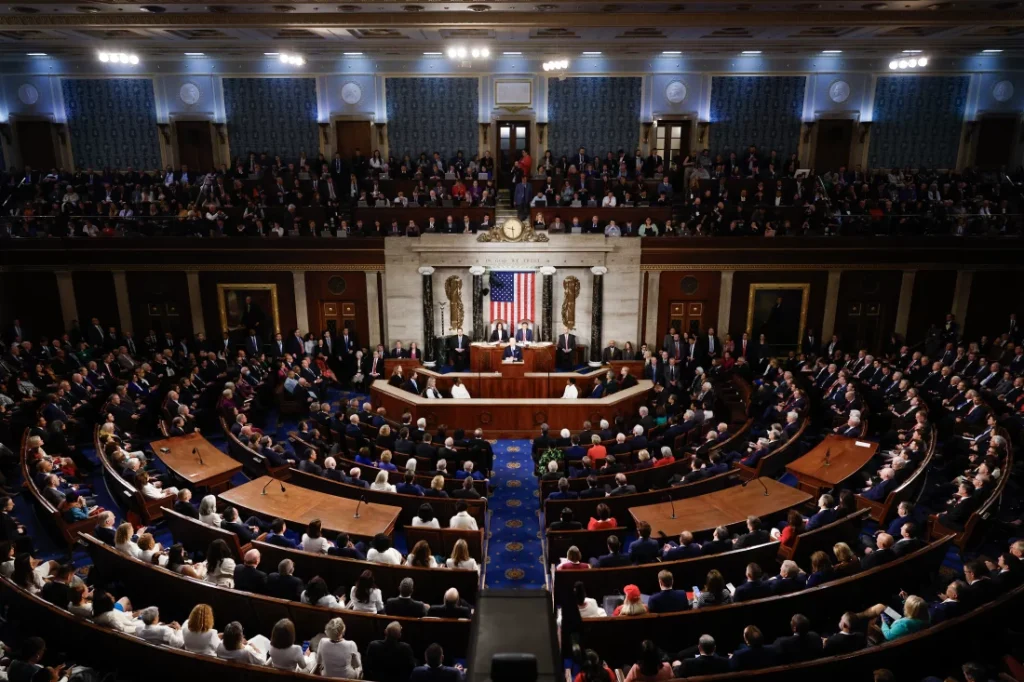Both parties poured hundreds of millions of dollars into the state that was considered the nexus of the battle for control of the Senate.
Brown has been in the Senate for nearly 18 years, flipping a seat in 2006. He went on to win parts of the state that former President Barack Obama failed to carry in 2012.
But Brown has never before been on the ballot alongside former President Donald Trump, who handily won Ohio twice.
Moreno, a former car dealership owner, tried throughout the campaign to tie Brown to national Democrat figures, including Vice President Kamala Harris. Moreno, whose family immigrated from Colombia to Florida when he was a young child, spoke frequently on the trail about immigration issues. In one ad, Trump, who endorsed Moreno, appears on video talking about how Moreno will “secure our border” and that Brown is a “radical left politician”.
Ohio has grown increasingly Republican in recent years and Brown’s campaign hinged on convincing hundreds of thousands of Trump voters to split their ticket and send Brown back to Washington. To do that, Brown worked on building up margins in cities and suburbs that lean Democratic while also showcasing his work with Republicans.
Brown and Democrat allies pointed to Moreno’s stance on abortion, including a comment about why abortion would be an issue for women over the age of 50. Ohioans voted last year to enshrine abortion rights into their state constitution.
Wisconsin
Sen. Tammy Baldwin, the incumbent Democrat, is facing Republican Eric Hovde in one of the most evenly politically divided states in the country.
Republicans made concerted efforts to recruit wealthy candidates in key races this year and Hovde is one example: a venture capitalist who invested $20 million of his own money into the race. But also like other Senate Republican candidates, he was attacked as a carpetbagger for living in recent years in his Orange County, California residence.
Baldwin, the first openly gay person elected to the Senate in 2012, keeps a low profile in Washington but was comfortably re-elected back home in 2018.
However, she has never faced a candidate as well-funded as Hovde in her prior campaigns. Like many Democrats, Baldwin focused on abortion rights and tried to paint Hovde as part of an extremist GOP minority on the issue. Hovde previously described himself as “100% pro-life” in past political campaigns, but in this one campaigned on his support for exceptions in the case of rape, incest, or if the life of the mother was at stake.
Pennyslvania
Sen. Bob Casey, the incumbent Democrat is running against Republican David McCormick in one of the more negative and personal Senate races of the cycle.
Pennsylvania–seen as a must win state for both presidential candidates–has seen staggering sums of political advertising flood its airwaves: more than $1 billion has been spent leading up to the election.
Ads included Casey attacking former hedge fund executive McCormick as an out-of-touch carpetbagger for maintaining a residence in Connecticut in addition to his Pennsylvania home.
McCormick is a returning candidate. He lost the 2022 GOP Senate primary to celebrity Dr. Mehmet Oz, who went on to lose that November. This time, McCormick had no primary challenge and the quick support of Senate Republicans’ campaign operation and Trump’s early endorsement in the race.
McCormick didn’t face a primary challenge and enjoyed quick support from the Senate Republicans’ campaign operation as well as Trump’s early endorsement.
Casey’s ties to the state run much deeper: he’s the son of former senator and governor Bob Casey Sr., and he himself has successfully won statewide elections six times prior to 2024. While Casey enjoyed early leads in polling for much of the year, the race rapidly tightened in the closing weeks of the race and quickly aligned with the presidential race with a statistical tie and an outcome unlikely to differentiate from the top of the ticket.

